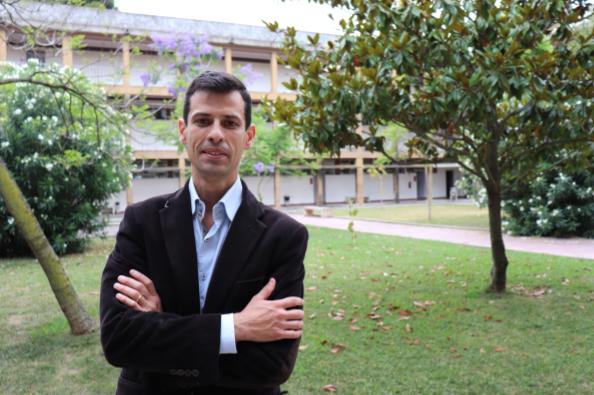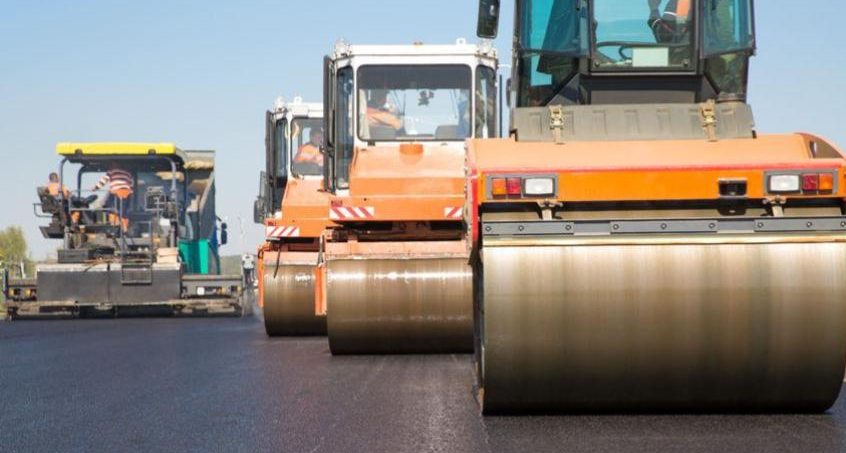SHARE
A New Innovative Technology for Road Asphalting in the rain
Asphalting in the rain: The Challenge
In February 2018, Sacyr approached ennomotive to solve a complex challenge: an innovative technology for road asphalting in the rain. Traditionally, the asphalting of roads requires special humidity and temperature conditions to ensure the good quality of the surface. However, in tropical countries where it rains heavily and frequently, paving is extremely difficult, the quality of the asphalt is not always optimal, and oftentimes the operation needs to be halted. Prior to this challenge, a few potential market solutions had been considered and tested, but they all solved the problem partially, so the expected effectiveness and results were not entirely satisfactory. Sacyr was looking for a process or an asphalt mix that enabled the paving under heavy rain conditions and the quality of the final product needed to be similar to the asphalt obtained in dry weather. For 6 weeks, 35 engineers from 10 countries accepted the challenge and submitted different solutions. After a thorough evaluation, Sacyr picked the two solutions that best met the evaluation criteria and awarded the winners, the Portuguese Civil Engineer Henrique Borges Miranda, and José Manuel Sanz, from Spain. We have contacted Henrique Miranda to learn about his experience and motivations to compete in this challenge. Here you can read the full interview.Henrique Miranda, an asphalt expert from Portugal

Can you introduce yourself briefly? What is your more relevant working experience?
My name is Henrique Manuel Borges Miranda, I'm from Portugal, and I live in the beautiful city of Lisbon. Academically, I graduated in 2005 as Civil Engineer at ISEL (Instituto Superior de Engenharia de Lisboa, Instituto Politécnico de Lisboa), where I had the honor to receive the award for the best civil engineering student. In 2008, I completed my Master of Science (Transports - Design and Construction of Transportation Infrastructures) at IST, with the collaboration of the National Laboratory of Civil Engineering, where I experimentally studied the fatigue behavior of asphalt rubber mixtures. In 2016, I completed my Ph.D. in Civil Engineering at IST, with the collaboration of the National Laboratory of Civil Engineering, where I experimentally studied Stone Mastic Asphalt – mix design, production, application, and performance. Regarding my professional experience, I started to work at ISEL as a monitor in 2003, past to assistant professor in 2008 and adjunct professor in 2017. I am also responsible for the courses on pavement engineering and topography. During all this time, I simultaneously worked as road and pavement engineer for about 10 years, regarding, namely, road and pavement design, development of new materials (rubberized binders), construction and maintenance of highway pavements. More recently, I have been additionally invited to work as a researcher in the Research Centre for Territory, Transports, and Environment in Portugal.What challenges have you participated in? Which do you like most?
Life is a challenge, and I like challenges, especially when they require thinking differently. Different is good. Every time we accept a challenge, we have the opportunity to grow no matter whether we win or not. Fortunately, in 2017 I had the honor of winning the civil engineering innovation award for young engineers given by the Portuguese Association of Engineers. This innovation award was related to the patent I developed during my Ph.D. It was about a new method to design, in a day, stone mastic asphalt using just a computer or a smartphone, as opposed to the several weeks needed in the laboratory for the same mix design. In terms of online challenges, this was my first one with ennomotive, and from what I had the opportunity to experience, it was a great competition with 35 international participants. This being my first ennomotive challenge, with such hard competition, it only makes me prouder and very honored to receive this award from Sacyr and Ennomotive. I truly hope that this will be the first of many other challenges in which I participate and, if possible, win. At least, I will work even harder to try and accomplish that. Having said that, I like challenges that involve the development of new materials/solutions that make our lives easier, not only in civil engineering and pavement engineering but in general, just because I like the feeling of thinking outside the box. It gives us space to dream of a different future than the one that we live in today.How did you come up with the winning solution?
In the solution for “asphalting under heavy rain”, I basically focused on the main question to solve, without even knowing other possible existing solutions. I think that gave me the required mental space to develop a new solution, out of which we can make a new patent now. Inspiration came both from my background in pavement engineering and from the challenge proposed by Sacyr and ennomotive. Congratulations to them for bringing a good question to solve. I truly hope this award inspires engineers in Portugal to do the same since I'm the first Portuguese Civil Engineer to get awarded at ennomotive. We have many extraordinary civil engineers, I see that every day with my students.What is the level of innovation in the Portuguese Universities? Is there any technological area you would like to highlight in Portugal?
I cannot speak in the name of other Portuguese Universities, but I can tell you my experience at ISEL (Instituto Superior de Engenharia de Lisboa, Instituto Politécnico de Lisboa). Regarding pavement engineering, we are focused in establishing new research platforms about, namely, circular economy, and the development of new road materials such as new rubberized binder technology that allows the use of rubber powder of old life tires till 50% on the binder without losing storage stability.Share your thoughts with us and explore what else ennomotive has to offer you
Join the engineering community here